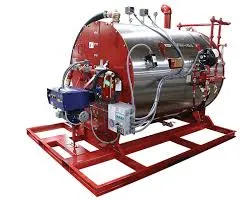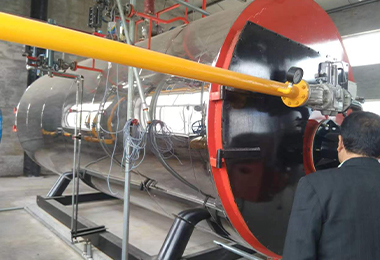
Jan . 15, 2025 05:02 Back to list
Biomass fired steam boiler
Biomass boilers have increasingly become an integral component of sustainable energy systems, offering a viable alternative to traditional fossil fuels. Understanding what a biomass boiler burns is crucial for those considering this green energy solution. Biomass boilers primarily consume organic materials, which are classified as renewable resources. This characteristic aligns well with ecological goals, making biomass a popular choice for environmentally-conscious consumers and industries.
Innovative biomass solutions include anaerobic digesters, which produce biogas from organic waste. Although primarily used in smaller waste-to-energy applications, biogas can be a supplementary fuel for biomass boilers, particularly in mixed fuel systems. The versatility of such configurations makes biomass boilers adaptable and capable of integrating into various energy solutions. Transitioning to biomass means embracing a source of energy that transcends mere cost-saving advantages. It is about building an eco-friendly future, reducing dependence on diminishing fossil fuel reserves, and supporting sustainable land management practices. Governments and environmental organizations worldwide continue to support biomass initiatives through incentives and policies, encouraging broader adoption. When considering biomass boilers, it is also crucial to note practical aspects such as storage space and fuel delivery systems. The size and type of biomass fuel can influence the overall design and cost-effectiveness of the boiler installation. Thus, users should seek expert consultation to tailor solutions to their specific needs. In summary, biomass boilers offer substantial environmental and operational benefits by burning a range of organic materials—primarily wood, agricultural residues, and energy crops. Their capacity to adapt to various fuel types makes them an excellent choice for those looking to make a positive impact on both the environment and their energy expenses.


Innovative biomass solutions include anaerobic digesters, which produce biogas from organic waste. Although primarily used in smaller waste-to-energy applications, biogas can be a supplementary fuel for biomass boilers, particularly in mixed fuel systems. The versatility of such configurations makes biomass boilers adaptable and capable of integrating into various energy solutions. Transitioning to biomass means embracing a source of energy that transcends mere cost-saving advantages. It is about building an eco-friendly future, reducing dependence on diminishing fossil fuel reserves, and supporting sustainable land management practices. Governments and environmental organizations worldwide continue to support biomass initiatives through incentives and policies, encouraging broader adoption. When considering biomass boilers, it is also crucial to note practical aspects such as storage space and fuel delivery systems. The size and type of biomass fuel can influence the overall design and cost-effectiveness of the boiler installation. Thus, users should seek expert consultation to tailor solutions to their specific needs. In summary, biomass boilers offer substantial environmental and operational benefits by burning a range of organic materials—primarily wood, agricultural residues, and energy crops. Their capacity to adapt to various fuel types makes them an excellent choice for those looking to make a positive impact on both the environment and their energy expenses.
Share
Latest News
-
High-Efficiency Commercial Oil Fired Steam Boiler for Industry
NewsJul.30,2025
-
High-Efficiency Biomass Fired Thermal Oil Boiler Solutions
NewsJul.30,2025
-
High Efficiency Gas Fired Thermal Oil Boiler for Industrial Heating
NewsJul.29,2025
-
High-Efficiency Gas Fired Hot Water Boiler for Sale – Reliable & Affordable
NewsJul.29,2025
-
High Efficiency Biomass Fired Hot Water Boiler for Industrial and Commercial Use
NewsJul.29,2025
-
High-Efficiency Biomass Fired Hot Water Boiler for Industrial Use
NewsJul.28,2025
Related PRODUCTS
Copyright © 2025 HEBEI HONGZE BOILER MANUFACTURING CO., LTD. All Rights Reserved. Sitemap | Privacy Policy






















